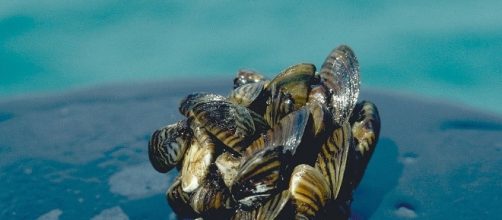As the effects of climate change become more apparent so too do the causes, the biggest of which being our eating habits. Industrialised agriculture and the production of meat produce more greenhouse gasses and carbon emissions than any other industry. So, with that in mind, is it time for us to change our diets? There are already two strategies for sustainable eating; vegetarianism and the more sustainable veganism, but there may be another option. Invasivorism.
Invasive Species are defined as non-native species, that when introduced are either; devastating to an ecosystem (by predating on, poisoning or competing with native organisms); are cause for economic harm; or are a detriment to human health.
Collectively invasive species are among the most destructive causes of biodiversity loss and are responsible for approx. US$1trillion worth of annual damages worldwide.
That is not to say we should eat every alien species - many non-native species are in fact a great benefit to the ecosystems they find themselves in - but we should consider every option that could remove damaging species from the Environment and detract from an unsustainable diet.
Invasivorism Around The World
Red Lionfish, native to Indo-Pacific waters, are now established in the Atlantic, Caribbean and Gulf of Mexico after their accidental introduction in the 1980’s. In Belize the Red Lionfish disrupts the ecological balance of the inner barrier reef by preying on many species of marine life, including critically endangered Social Wrasse endemic to the reef.
The lack of predators, rapid breeding rates and devastation of biodiversity necessitates the culling of Red Lionfish. Afterwards hunters are encouraged to sell the lionfish for consumption or to cook them in annual cooking contests to raise conservation awareness and minimise food waste. This lessens consumption from other unsustainable food sources whilst preserving the natural heritage of Belize, and, given that the two major industries in Belize are tourism and fishing, also serves to maintaining the economy.
Key to Sustainable Future
In regards to invasive plants, insects and other marine life, many have suggested the key to a sustainable future is a shift towards meat-free or insectivorous diets.
The U.N last year, recognising the environmental impact of livestock agriculture, advocated a global shift to a plant-based diet. A report from the Waste and Resources Action Programme also realised this, suggesting insects as a viable option to relieve pressure on land and energy use.
Miya’s Sushi restaurant in Connecticut embraced both of these principles, becoming the first restaurant with every dish on the menu comprised of invasive species. Described as “future sushi”, dishes incorporate invasive plants, insects, fish and molluscs.
Other Benefits
Aside from the ecological benefits another positive to eating invasive species is provenance, especially in regards to foraging. Sustainable food, no matter how sustainably produced, can oftentimes be just as bad for the environment because of its transportation footprint.
Eating invasive species would mitigate if not reinstate the economic damage the species caused and, if done correctly and the species is extirpated from the ecosystem, would liberate funds previously given to conservation efforts tackling invasive species. Both the economic boost and reclaimed environmental spending could then be diverted into climate action, renewable energy and habitat preservation/creation.
It's doubtable invasivorism will replace vegetarianism or veganism, nor should it, but it's definitely a step toward sustainability.


